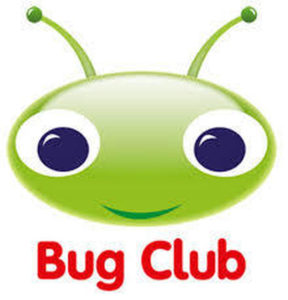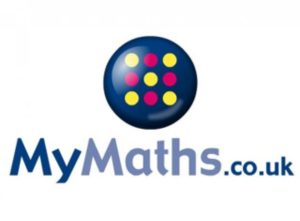 Homework is given important status at Holly Park. Our approach to homework may seem untraditional, but from an educational point of view, is successful and has clear purpose. Our purpose for homework is to support long term learning.
Homework is given important status at Holly Park. Our approach to homework may seem untraditional, but from an educational point of view, is successful and has clear purpose. Our purpose for homework is to support long term learning.
Lots of current research has shown that whilst homework may not support academic attainment directly per se, the research does show that if considered carefully, homework can contribute to curriculum design and implementation and can be used as an opportunity to support children’s long term learning.
At Holly Park we think that it is important for children to practise what they have learned in class at home to help them to be the best they can be – our homework gives them opportunity to do this.
- Reading – we expect all pupils to read at home (or be read to) every day. We expect younger children to practise their phonics daily for 10 minutes.
- Spelling – we expect children in KS2 to learn a set of spellings every half term. This is best completed broken down into short busts every week.
- Maths – We expect pupils in Years 3 and 4 (and those in Y5 who still need to) to practise recalling times tables every day for ten minutes. A useful resource is the Times Tables Rock Stars website that children have a login for.
- Other subjects – teachers will provide tasks on Google Classroom each week which support learning from the curriculum. This homework will be set on Google Classroom and pupils will be provided with login details.
In Reception
 Children need to access Bug Club online books. Each child will be given a Bug Club Login. They are expected to read their Bug Club book online every day across a week. Bug Club books are graded in difficulty and support the phonics approach to reading, Children are allocated a new book each week. Children also take home books from the book corner each week. Children take home key words to learn.
Children need to access Bug Club online books. Each child will be given a Bug Club Login. They are expected to read their Bug Club book online every day across a week. Bug Club books are graded in difficulty and support the phonics approach to reading, Children are allocated a new book each week. Children also take home books from the book corner each week. Children take home key words to learn.Year 1
Children need to access Bug club online books. Each child will be given a Bug Club Login. They are expected to read their Bug Club book online every day across a week. Bug Club books are graded in difficulty and support the phonics approach to reading, Children are allocated a new book each week. Children also take home books from the book corner.
Children will also take home a set of phonics words each week – these are a bank of real and ‘alien’ words and these should be practised at home regularly (10 minutes per day).
Children have a weekly open ended task to do from one subject in the curriculum. This is set on Google Classroom. This is a broad and balanced range throughout the year.
Year 2
Children need to access Bug Club online books. Each child will be given a Bug Club Login. They are expected to read their Bug Club book online every day across a week. Bug Club books are graded in difficulty and support the phonics approach to reading, Children are allocated a new book each week. Children also take home books from the book corner.
Children have a weekly open ended task to do from one subject in the curriculum. This is set on Google Classroom. This is a broad and balanced range throughout the year.
In the summer term children should practise spellings from the national curriculum list for Year 2.
Years 3, 4,5
The children have a weekly open ended/creative question to answer and present in their own style on Google drive.
The questions allow for self differentiation; fit with each individual’s own learning style and are designed to show breadth across all subjects over the year.
In addition the children will complete either one maths task or one spelling, punctuation and grammar task each week. These two tasks are alternated each week and are set in CPG books.
Children are expected to read daily
Children are expected to practise their set spellings weekly. These are a mixture of common words, national curriculum words, spelling pattern words and topic words. There is a half termly spelling test.
Children are expected to practise the set times tables each day. Children will have a Times Tables Rockstars log in. There is a half termly times tables test in Years 3 and 4.
Year 6
Year 6 homework is the same as the other junior years (above) however there is an additional weekly comprehension task.

In KS2 children take home spellings every half term.
Children in KS1 and KS2 also have access to My Maths which they can also access at home.
We encourage most homework to be done on Google Classroom as far as possible. For children who do not have easy access to an electronic device to do their homework, we will provide a large homework book.
How much homework should my child get?
The decision on whether to set homework at all – and if so how much – falls to individual Headteachers. At Holly Park, we understand that parents value homework, but we also want children to relax and play at home – they work very hard during the day! We feel that our homework is reasonable, manageable, age appropriate and supports long term learning.
The most important skills to work on are reading and times tables, and no child can ever read too much!
With the open ended tasks across the school the children will vary with the amount of time that they spend on them. The main questions to consider are – Is my child proud of what they have produced? Is this work a good effort for my child? There is no precise time guide for these activities.
How do I know how to support my child?
During the Meet the Teacher session at the start of the school year parents are advised about the expectations regarding homework for that year group. Throughout the year, we offer sessions for parents in key areas of the curriculum and learning, with the aim of supporting parents in helping their children.
Reading with your child
When reading with your child there are a range of strategies you can use to help your child read the words.
If he or she is stuck on a word get them to look at the letters and sound them out. Then get them to blend the sounds together e.g. c-a-t cat.
The pictures can be used to find clues to the words they may be stuck on; get your child to look at the pictures first and talk about what they can see. This will make them more confident about the story before they read it.
Look at the words they are stuck on and talk about what it looks like. Does it have a similar spelling pattern to other words? e.g. ball and call, rough and tough etc.
If they get stuck, read around the word to get an understanding of the story, the tense and what would be the most likely fit; does it sound right and does it fit in with the context of the story?
Remember it is not all about decoding the words, it is also about comprehension and it is important to chat with your child about what they have read.
For hints and tips to support your child’s reading at home, click on these links:
